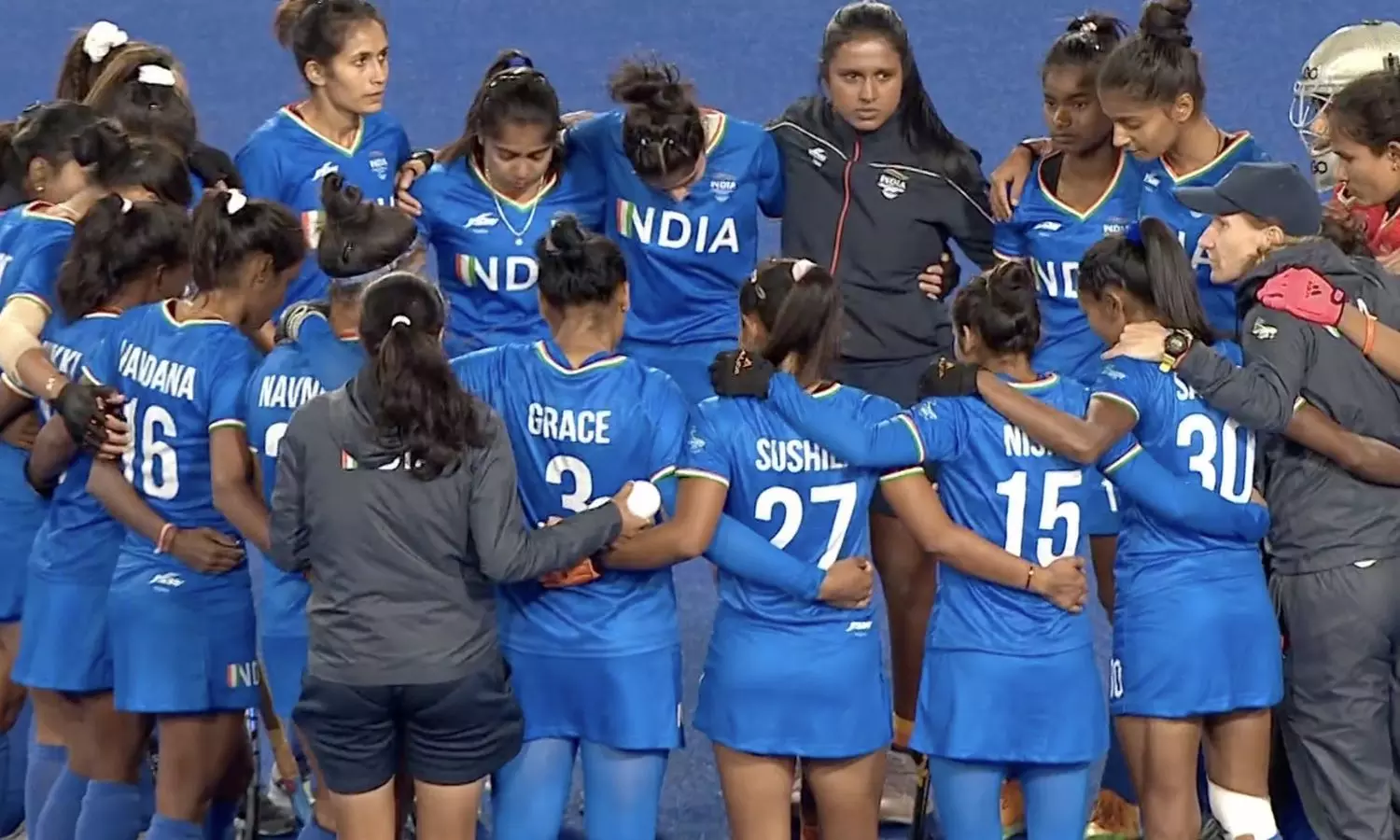Commonwealth Games
Unfair decisions India's biggest enemy at the Commonwealth Games 2022
Commonwealth Games 2022: Malfunctioning clocks, favouritism (and optical illusions?) India have fallen prey to numerous biased decisions which have raised a lot of questions on the internet.

Indian Women's Hockey team (Source: Twitter/Pratt)
In sport, personal bias and favouritism should be ideally set aside, but the need to have a winner often leads to some dubious decisions. Some of the refereeing decisions in the Commonwealth Games 2022 have been quite berserk, to say the least, especially for India.
The recent incident is the apparent clock glitch that happened during the penalty shootout in the Indian women's team's semifinal defeat to Australia on Friday night. Australia's first attempt at goal was saved by captain Savita Punia. However, the goalie's effort was rendered null as the referee asked Australia to retake, citing the reason that the clock hadn't started. This time, India conceded.
"It was a very close match and sometimes these decisions don't go your way, it becomes tougher. The first stroke was asked to be retaken. It was tough for us but, at the same time, these are part of the game. We have to move on," the skipper told Sony Sports after the unfortunate defeat.
While Punia accepted the defeat, her coach Janneke Schopman was a little more irked than her. "I just don't understand. Australia wasn't complaining, everyone agreed. It was a great stop. Even the umpires did not understand," Schopman said.
"The girls are really upset about it...I tried to calm them down. In hindsight it's 50-50 but I'm sure their focus was lost a little bit after that moment," a frustrated Schopman said.
"I am angry also because I don't think even the officials understood what happened. They said it's not our decision. I said 'Australia are not complaining, they know they've missed it, it was easily 10 seconds and they got the opportunity to score'."
Sreeshankar's optical illusion
The women's hockey debacle isn't the only scenario that ruffled some feathers amongst the Twitterati. Another incident involved long jumper Murali Sreeshankar.
It was 1cm that stood between Murali's silver and the gold medal. In the fourth attempt he had, at least according to the dents made on the sand pit, crossed the 8m mark by a margin. But, the attempt was not legal because of the slightest margins, which to the naked eye didn't look like an overstep on the board.
Screengrab: Sony Liv
Boxing bias
Boxers in Ashish and Lovlina Borgohain, both of whom were medal prospects for India, were ousted before they reached the semi-finals. The reason? Sometimes, blatant bias.
In the match involving Ashish, everyone could have sworn that the Indian was miles better than England's Aaron Bowen. After the scores were tied after the first two rounds, the Indian upped his game. However, there was one referee who constantly favouring the Englishman, the only one to give a perfect 30.
In Lovlina's match, there were a lot of things going against her. Be it a simple miscalculation of a referee's score or deducting points without warning, the trend continued.
The results were also debatable for Sanjeet and Shiva Thapa.
Perhaps the first instance of inconsistent umpiring spotted in Birmingham was inside the squash court. The matches which showed this were Anahat Singh's Round of 32 game against Emily Whitlock and Joshna Chinappa's against Hollie Naughton.
The psychological impact such moments can have - like the clock glitch in the hockey semifinal, the setback from which India never recovered - cannot be underestimated. As the women's coach Schopman said, "I think those people just don't understand the game and the emotions that are involved."
